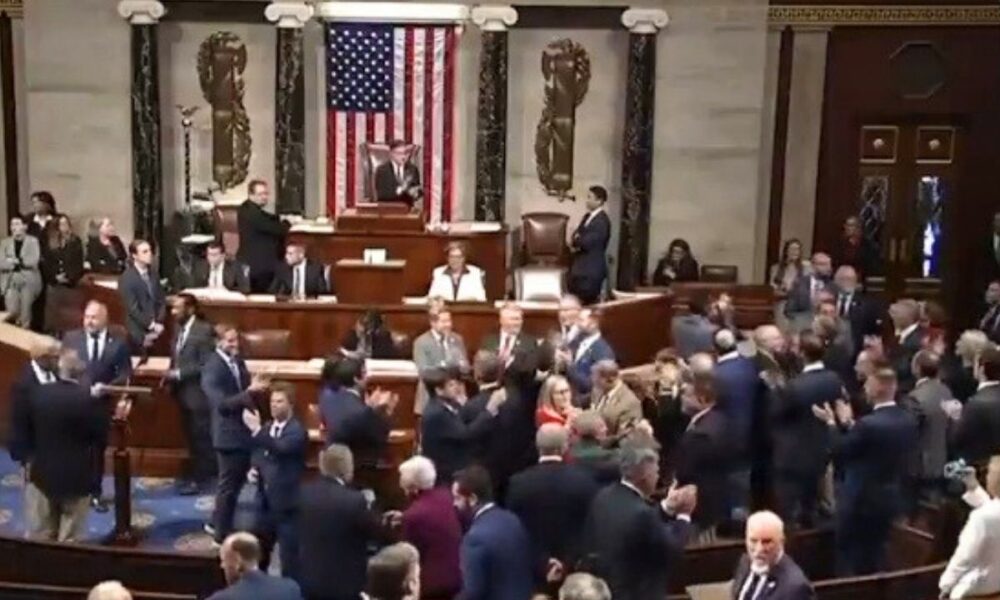The U.S. House of Representatives narrowly passed President Trump’s signature legislation, the One Big Beautiful Bill, late Wednesday night in a 218–214 vote, sending the sweeping tax and spending package to the president’s desk for signature on July 4.
🚨 BREAKING | Speaker Mike Johnson signs the “Big, Beautiful Bill” and sends it to President Trump’s desk for enactment into lawpic.twitter.com/Ax2zZ1LYHk
— VOZ (@Voz_US) July 3, 2025
The vote followed hours of tense debate and a record-breaking 8-hour, 44-minute floor speech by Minority Leader Hakeem Jeffries.
According to Fox News, all Democrats and two Republicans opposed the final measure, which had already cleared the Senate in a 51–50 vote earlier this week, with Vice President JD Vance casting the tie-breaking vote.
What’s in the Bill
Dubbed the most ambitious domestic legislation of the Trump administration, the bill includes:
-
Permanent extension of Trump-era tax cuts
-
Elimination of federal income tax on tips and overtime
-
Expansion of the child tax credit and a $6,000 senior deduction
-
New investments in defense, border enforcement, and rural infrastructure
-
Tightened eligibility for Medicaid and SNAP benefits
-
Repeal of clean energy tax credits
White House officials say the bill will put $10,000 per year back into the pockets of typical middle-class families and mark the largest tax cut in American history for working families.
Addressing the Critics
Democrats and left-leaning policy groups have accused the bill of benefiting the wealthy and threatening healthcare access for low-income Americans. The White House pushed back Wednesday night, calling those claims “myths.”
“This is the most pro-growth, pro-worker, pro-family legislation ever crafted,” the White House said in a statement, adding that the bill protects Medicaid and Medicare, strengthens SNAP for the truly needy, and enacts work requirements for able-bodied adults without children.
The administration also claimed that the bill will reduce deficits by $2 trillion by cutting waste, fraud, and abuse, as well as driving economic growth.
Next Steps
President Trump is expected to sign the bill during a July 4 ceremony at the White House. Aides say the event will highlight key components of the legislation, including provisions benefiting small businesses, law enforcement, and domestic manufacturers.


